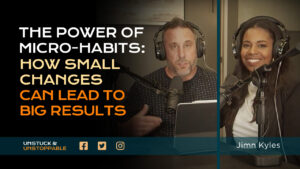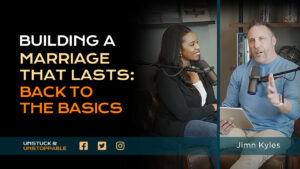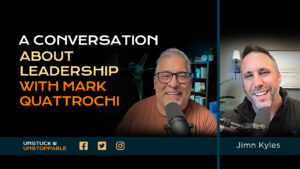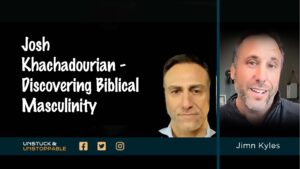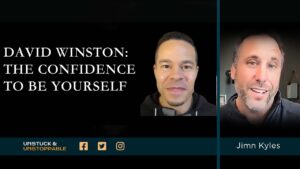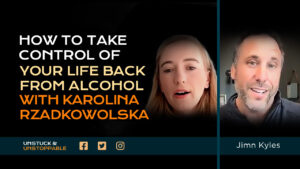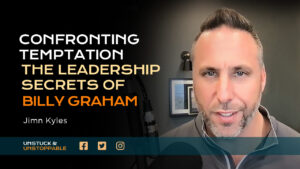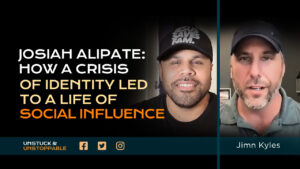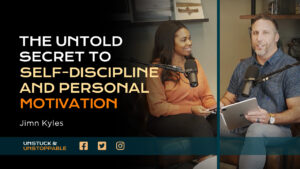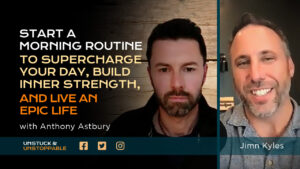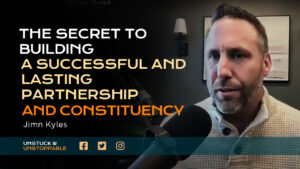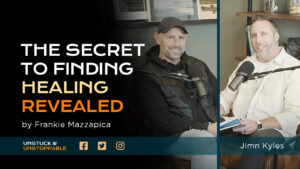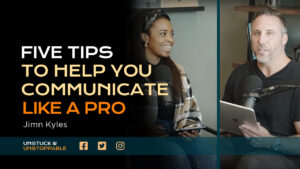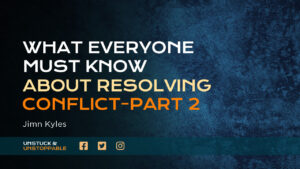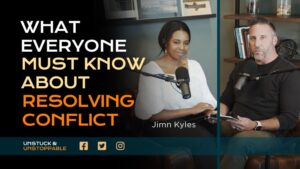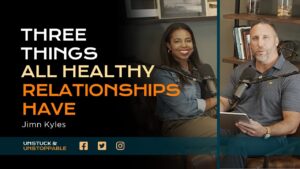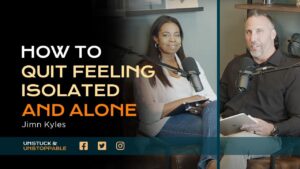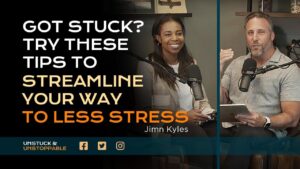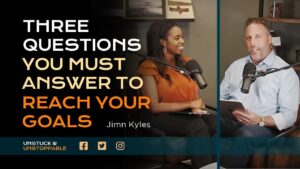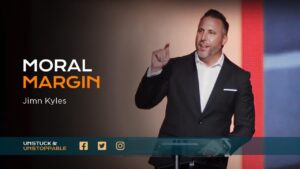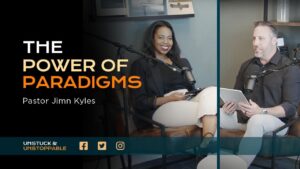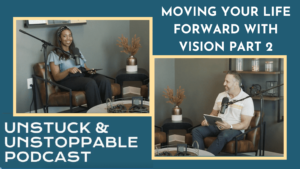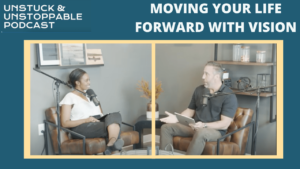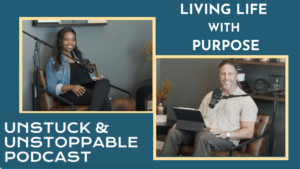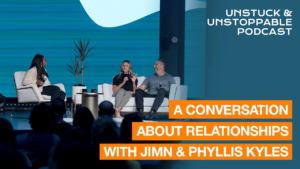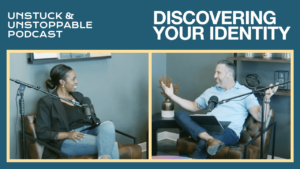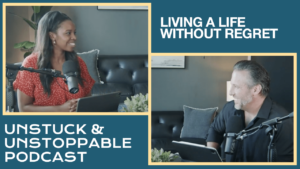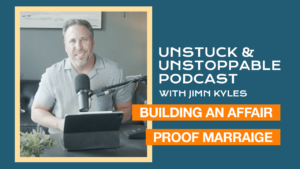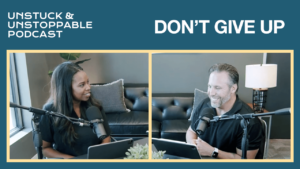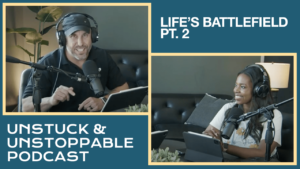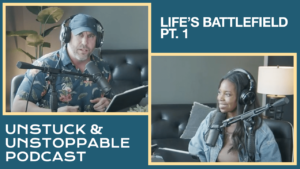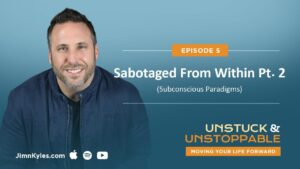031: How To Take Control Of Your Life Back From Alcohol with Karolina Rzadkowolska
Do you feel like your life is out of control and that alcohol has taken over?
Today’s guest is Karolina Rzadkowolska , a certified alcohol-free life coach and bestselling author of Euphoric: Ditch Alcohol and Gain a Happier, More Confident You. Listen in as she shares her journey of sobriety and how it has helped her become more authentic and courageous.
Learn about opening up to a world of possibilities and the 8-week plan that is customizable to help with the mind, body, and soul. Discover tips on recognizing limiting beliefs and steps for dismantling them in order to open up a world of possibilities. Get free resources such as “How to Take a Month Off and Feel Amazing” or “How to Rock a Party Sober or Alcohol Free”.
Order your copy of “Unstuck and Unstoppable” here –www.jimnkyles.com
Join our email newsletter and get the first three chapters of my book for FREE (Ch. 1 – Help, I’m Stuck, Ch2 – When Life Bites You, Ch3 – Don’t Settle Where You Are) Click this link to download now – https://pages.jimnkyles.com/bookpreview
Website – www.jimnkyles.com
Podcast link – https://kite.link/E7yT9WZ
Connect with Jimn:
Instagram – https://www.instagram.com/jimnkyles
LinkedIn – https://www.linkedin.com/in/jimnkyles/
Facebook: https://web.facebook.com/jimn.kyles?_rdc=1&_rdr
Connect with Karolina:
Podcast- https://podcasts.apple.com/us/podcast/euphoric-the-podcast/
Instagram – https://www.instagram.com/euphoric.af/
Website – https://euphoricaf.com/
Facebook – https://web.facebook.com/euphoricaf/?_rdc=1&_rdr
Email – hi@euphoricaf.com
#unstuck #unstoppable #unstuckandunstoppable #unstuckandunstoppablepodcast #jimnkyles #jimkyles #SelfCare #selfcarematters #SelfCareIsHealthcare #selfcarebook#selfcarefirst #getunstuck #getunstucknow #getunstuckbeunstoppable #leadwell #leadwellservewell#moveyourlifeforward #moveyourlifeforwardnow #moveyourlifeforwardonpurpose #moveforward #moveforwardtogether #moveforwardinfaith #leadership #leadershipdevelopment #leadershipskills
Jimn Kyles 00:00
Hey, welcome to the unstuck and unstoppable podcast where we help you move your life forward. If you’ve ever struggled with alcohol and wanted to learn how to take control of your life back you are listening to the right podcast today. I’m so excited. I’ve got a guest with me today that you’re gonna love. Her name is Karolina Rzadkowolska. I think I said it right and she can correct me a little later. But let me tell you who she is. She is a certified alcohol free life coach and empowerment expert and best selling author of euphoric ditch alcohol and gain a happier, more confident you. She’s worked with 1000s of clients through her online courses and coaching and has changed people’s habits and kept them from drinking to help unleash and unlock new levels of health happiness potential, so that they could go after their greatest dreams. And I’m so excited to have her here with us today. How’re you doing? Karolina?
Karolina 01:02
I’m doing so good. Jimn, thank you so much for having me.
Jimn Kyles 01:05
Oh, well, I’m so thrilled to have you on the program today. It’s so exciting. I really believe that people that are joining us today, either through the podcast, or maybe you’re watching on YouTube, that they’re going to enjoy today. I’ve enjoyed getting to know you seeing what you’re doing. You’re doing some really amazing things. And I’m excited to talk about it. I mean, your book euphoric. So if you don’t have a copy of it, you gotta go get a book. It’s on Amazon. It’s a best seller. The whole subtitle ditch alcohol and gain a happier, more confident you. Wow, what an amazing just subtitle in and of itself. Now that as we talked about this, before we get into it to talk a little bit about your your last name, you and I have laughed about that. But first off, pronounce it correctly for us. And then tell us about it.
Karolina 01:56
Yeah, so it’s Karolina Rzadkowolska. I am Polish and it is actually my maiden name. I’m married. But I decided to keep it because it’s just such a good conversation starter for one. But it’s also just rooted in my identity. And it’s a really proud heritage.
Jimn Kyles 02:12
Oh, I love it. Now tell us you just wrote a book. And this is how we stumbled across you. Because really, I just wrote my book I was telling you about unstuck and unstoppable. It just released. And we talked about finding your purpose, discovering who you are your identity, your vision, and then your paradigm. And one of the things that you talk a lot about is really this, this limiting belief and the idea of not really knowing who you are. And because of that allowing alcohol to really take control of your life. Tell us a little bit about the book. euphoric. What made you write it?
Karolina 02:52
Absolutely. Such a great question. And I’m so glad that we have such a common theme that runs throughout our work, because honestly, you know, alcohol does such a good job of distorting us of what our true purpose here is on this planet, you know, and it’s so conditioned and socialized. It’s no one’s fault that anyone has a habit or relationship around alcohol. It’s literally our rite of passage as teenagers and then pushed on us at every single social event everywhere we go. And so you know, personally, I fell into that trap. And so I started drinking pretty regularly in college, you know, it was just the thing to do. And I really relied on it heavily to, you know, form this new identity of someone who felt more confident in college and just making a lot of friends. And I got into this party lifestyle pretty quickly. It was not healthy back then. And so I continued that, you know, through grad school, but some of them really happened in my mid 20s. I settled down, I got a career, I got married, I bought a house, you know, I started really growing up. And I also started to increase my interest in health and wellness and mindfulness. And so basically what I did is I took this habit and I pushed it to the weekend. So Monday through Thursday, I live this pretty healthy lifestyle. I would go to yoga class, I would drink green juice, you know, and every single weekend alcohol came in to just knock me down. It was the normal weekend events. It was your dinner party. It was your sushi night game night, all those things, maybe some wine with at home with some Netflix or something. But I couldn’t shake the feeling I had every Monday morning. Every Monday morning I woke up feeling like a shell of myself. I woke up feeling depressed, groggy, tired, regretful ashamed. I hated how I fell on Monday mornings. And I spent a lot of time just recuperating, just trying to get back to normal again. And so I started you know, doing my healthy routine and slowly, slowly starting feeling better throughout the week. And then it’s Friday. I feel so good and it’s time to drink again. And I basically live in this pattern, the cycle of just this endless roller coaster of just crashing all of the progress I made throughout the week by just taking five steps. backward with drinking every weekend. For years, years and years and years and years and years, it was just like banging my head against the wall. And the thing my biggest problem was that I could tell that alcohol was the culprit. You know, I was intuitive enough to see that that was the issue. But I also didn’t really relate to these ideas of alcoholism or a or like rehabs. I mean, I really wasn’t drinking at that extent, either. It hadn’t taken over my mornings or anything like that. So I kept pushing away change because I thought I had to identify with that in order to make a change. And so I was like, Okay, I’m normal. I had the story in my head. Normal adults drink Karolina, if you want to be a normal adult, you just have to drink, right? Even though at that point, I really just didn’t want to anymore. And so finally, the thing that really shook my, my mindset at that time was just hearing about the concept of dry January, so dry January, coming soon. It’s like this time where people take a break from alcohol for the month of January, and it’s become socially kind of acceptable every year, more and more people do it. And when I first heard about it, I was like, Oh, my gosh, I can take a break. And I don’t have to explain it to everyone, I can finally have an excuse that the next social event I go to. And so that was the first chance I really gave myself to, you know, ditch the alcohol. I have to say it was challenging. I had to learn all the new habits and ways of dealing with my emotions. But I could not. I could not also not honor how much I was falling in love with the lifestyle. I mean, waking up with peace in your heart in the morning because you don’t regret anything you did the day before or you know that you’ve got peaceful, deep sleep is something that just was so powerful for me. I felt happier than I had ever felt before I was appreciating nature and being with my dog and just so much more holistic activities in my life. And I come to February and I still have this reframe in my mind. Normal adults drink Karolina, this can’t last forever. And so I started drinking again a few times that February. And it’s not even that much alcohol. But I noticed an immediate contrast. One or two drinks in I get frustrated, cranky, exhausted, I’m even picking little fights with my husband. My sleep is ruined. The next day, I feel groggy, and I’m like, oh my god, drinking sucks, like really. And so at that point, I decided to take another break in February of that year. And it’s basically been almost five years later that I’ve been alcohol free. And what ended up happening was that every single day, every single week, and every single month, the longer I went alcohol free, the more limitless confident and purposeful I felt in my life. And I recognize that I was really drinking. It was like so normal because everyone was doing it. It was this TGIF. It was like I can’t wait for the weekend. The week sucks. Let’s just get to that weekend. And I didn’t recognize how much unfulfillment I had in my week. And so as I was changing my relationship with alcohol, I discovered what I really wanted in life. And I then I got the confidence to go after it. I ditched my job as well, I launched a business I wrote a book like my whole life is a night and day difference. And now I have fulfillment literally every single day based on what I do. And I’m not chasing an immediate buzz.
Jimn Kyles 08:08
Wow. Yeah, well, you know, I love that. And I love what you talked about, even it’s almost like a vicious cycle that sabotages your life, that when you’re in it, you know, there’s, there’s these emotions, there’s these thoughts, things that cause you to do it, then once you do it. Now you’re regretful, you’re trying to just regain your life back and it just goes in this endless cycle. Let me ask you this. You said several times that it was a thought that you had you know, all adults drink things like that. Do you feel like that the drinking combs came on? Because of some thoughts and beliefs that you had about normal people? And or was it a coping mechanism? Or both? Or, you know, are there other things that you think bring that on, you know, because I’m thinking about the person that’s listening right now. And they’re like, hey, I can relate to that. But we got to go more than just to the behavior of what they’re doing. It’s the why they’re doing what they’re doing. So I guess the question would be, you know, what would you say the reason for doing it was, and then maybe some things that helped you tap into a why that was greater?
Karolina 09:14
That’s such a great question. And I think that really, after working with so many clients over the years, I have done to find two main reasons why all people drink. And then there’s also unique reasons that come on top of those unique relevances. And the first one is societal conditioning. Like we have to recognize that we don’t live in a society in a vacuum that we all have marketing and messages and images of other people who drink in our world, right? And even if someone is a young child, they’re still seeing this on TV. They’re still seeing it in movies, and they grew up seeing their parents or their uncles or aunts drinking. And what happens is teenagers is that they assume that the pathway to adulthood is through drinking right? And teenagers get a lot of validation from doing that they get maybe the sense of independence, you know, to finally try their first drink at a party, maybe even a spirit of rebelliousness, you know, like, what teenager doesn’t have that. And then then a sense of sophistication or glamour or all these things. And so it’s so conditioned on us. And then even if you’re not a teenager, you know, you could be someone who doesn’t drink throughout high school and college. But then you get to your first job after college. And it’s just happy hours, the way that all the colleagues bond, like, it’s inevitable that at some point, in a Western country drinking is going to be the norm and a situation that you’re in. And it’s going to be told to you that this is the way to fit in, right, fit in, be independent, whatever it is. So we kind of attach that meaning to alcohol in the first place. Another reason why drinking becomes so relevant, and every people everyone’s lives are people who drink is just the power of habit. You know, like when you think about a person who’s been drinking, you know, they’re 40 years old, they started when they’re 18, how many times in their life have they drank, it’s not like this, anything I can count on my fingers. It’s hundreds, if not 1000s, and 1000s, and 1000s of times, and the power of habits get so routed in our brain and these neural pathways, where we think that we have a cue and we get rewarded when we do a specific activity. So it’s like, oh, I had a stressful day at work, click pour a glass of wine. Ooh, it’s time to go to happy hour with my friends. Ooh, it’s 7pm. Dinner time. Ooh, it’s a restaurant experience. Let’s order a drink, right. And so, you know, look at some example, like just brushing your teeth. I brush my teeth, obviously, every single morning of my entire adult life, let’s say and at this point in time, you couldn’t pay me to not brush my teeth in the morning. It’s such a routed habit in my brain, I get such a big reward from having a clean mouth. Now, I know that sounds preposterous, but like 200 years ago, people were not brushing their teeth, you know what I mean? It’s not something that we have to do necessarily every day. And think about it. There’s nothing about toothpaste or brushing my teeth. It’s actually chemically addictive to the brain. And yet I am locked in that habit, you’re not going to get me to give it up. Right. So imagine with alcohol not only is the power of habit so cemented in the brain as the stress relief as this fun, elixir, all these things, it actually is chemically addictive, right. So it actually changes the neuro chemistry of our brain to want more of it over time. Those two reasons are really like it’s not that only if some people have issues with alcohol, the majority of people who regularly drink over a drink. So like when I look at the landscape of just statistics of consumption levels across the western United States, most drinkers are over drinking regularly. So it’s like those two forces are so strong and every drinkers life. Now there’s a unique relevance that comes on top of that. So for example, in my story, I was a really shy child, very, very shy, I, in high school kind of felt like I was on the fringe of everyone, I didn’t really make friends easily. I was very introverted. I still obviously am today introverted. But when I started drinking, it was like my senior year of high school. And then college alcohol was like this magical elixir. Finally, I could have this beverage and turn into the extroverted person I wanted to be be more gregarious, be more outgoing, outspoken, all those kinds of things. And so in my mind, it was like the tool I needed to use to be more confident, and I relied on it so heavily, you know, throughout my, my college and my 2020 something years to elicit that part of myself out. The interesting thing though, about that is alcohol actually made me so much less confident over time. Well, I mean, there’s actually the embarrassing nights, you know what I mean? Like, you wake up and you’re like, Oh, my God, what happened?
Jimn Kyles 13:29
Oh, my God, please, nobody take a picture of that. Hopefully, it doesn’t live. Could you imagine the social media? Like even Yeah,
Karolina 13:37
right. You know, the wine stains on your teeth, like all of that, that that just makes trip shrivels up shamed on the spine. But then it wasn’t just that the embarrassing times it was literally like, I go to a networking event and I get there and I feel you know, uneasy and not sure of myself in my skin. And it’s like, oh, but have a drink and you’ll be better, everything will be better. It was as if I was telling my subconscious, Karolina, you’re not good enough. Nobody wants to talk to you, you have nothing interesting to say, but here, have a drink. And then you’ll be better. You know what I mean? So it was constantly telling me I’m not good enough. And so over time, my self confidence was so low, my self esteem was so low. Because of this dumb myth. I believe that alcohol actually made me more confident. Nothing outside of us will ever make us more confident it is all an internal game. It is something you have to practice within. Right. And so that’s a unique relevance that I had, right and I’ve had so many others on top of that, that’s just one story to illustrate something that is also really hooked me into drinking. But other people have, like you said other things they go through and incredible pain or trauma or suffering. And alcohol starts to be the thing that numbs it out, right. And there’s it’s not even a big pain or suffering. Sometimes it’s just the apathy of daily life in a life that’s not fully aligned to what you really want. You know, the apathy of going to a job that’s not fulfilling the apathy of running around doing all these errands, you know, it’s like the drink at 7pm is the Savior to all the other stuff we just put up with in life, you know. So it doesn’t always have to be this big traumatic story either. And so finding that unique relevance and really digging deep and healing those stories is going to be so crucial for anyone to change the relationship with alcohol. Because nowadays, not only one have I completely revamped my sense of confidence and self esteem and myself by personal development work I’ve done. But too, I think it’s a joke to think that alcohol would make you more confident I don’t, I don’t see as a tool that works. It’s an illusion that was popped for me. So I have no desire for it either. So I definitely think that, you know, it’s super complex, how we all form relationships with alcohol. But like I said, it’s it’s nobody’s fault. Like, we don’t grow up in Saudi Arabia, where it’s illegal, it is shoved down our throats, let’s just be honest,
Jimn Kyles 15:52
right. All the messaging, it’s very interesting how media, television, everything, we’re exposed to talks about the glamour and the glitz of it, but none of the consequence of it, none of the behind the scenes, and then what you think will give you courage and seems to give you courage ends up leaving you wrapped up in bondage, you know, because like you said, it’s, it’s very rare that someone can control their drinking, there’s always a tends to be an escalation, like doing it more and more and the frequency, and we find that a lot of that is the root of like you said, what’s inside? I love what you said, what we’re looking for is not outside, it’s not out there, it’s actually inside of us. Tell me this, when you said you said, you know, healing from some of the pains of the past and said like that, but really some of the issues that were within you, how did you begin the journey of healing? How did you begin the journey of self confidence? Value, self value, identity, things like that? What, what began? Or how did you begin to uncover those things and realize them in your life?
Karolina 17:05
Yeah, good question. And I’ll be honest with you, you know, when I was still drinking, like, I would pick up a self help book here and there, but it just never really clicked because the shame and the stuckness was just so that was just so much bigger forces, right? And so I really, in my book, it’s this presentation of this lifestyle that you get to experiment with, right? Like, it’s not any one has to quit drinking forever. All these things. It’s like, hey, if we’ve been drinking, since we were 18 years old, we don’t even know what our natural state feels like. We don’t know, you know, this, just the science of how alcohol affects our body and brain is so eye opening, you know, I encourage anyone to learn it. You can read more in my book, or other books out there. It changes your neuro chemistry to feel more depressed, it changes you to have more anxiety. It is such a hard thing for your body to process and increases risks for almost every single disease we’re worried about. And so there’s no needs an excuse to just reevaluate alcohol there. Like there doesn’t have to be a problem, right? In air quotes, I say, because we always wait for the problem to be really big to just have a reevaluation. And that often can look like just taking a break. And I think that for me, taking that break that experimentation of just like, hey, let’s try this. Let’s see how I feel. allowed me to experience it with just this open heart and this open mind, right? Just evaluating, okay, well, you know, I didn’t drink on Friday night on Saturday morning, I feel amazing. Like I haven’t, I haven’t had a Saturday morning experience like that in years, you know. And so from there, it was just like this building up this constant building up every day, I’m waking up with self love, because the past version of me cared for the future version of me. Well, I remember waking up after drinking and being like, Did she really not even care about me? Like, did she not know we have to go to work today and have a presentation like really? And so every day I wake up with this, like, ooh, the past version of me loves me. She’s, she’s prepared an amazing day for me today. So much more self esteem building. And I think those positive emotions I experienced literally just in the first month or two without drinking, it turned me on so much. Yeah. So this idea of really up leveling my previous identity, learning more about personal development, changing what I thought the definitions and the limits were in my life, like I just got so turned on and so hungry for that, you know, I started I’ve always was a big reader, but I just dived so big into reading books, that we’re opening my eyes, doing programs, learning from mentors and heroes that you know, really speak about how anything is possible, you know, when we change our mindsets and heal from some of our past load and your beliefs. And it was finally landing on me because I could see the evidence of it happening in my life. I could see how my beliefs about alcohol are changing and in the same time, some of those beliefs about myself, and I think growth is one of our main purposes in life like just as a blanket statement. We all have probably unique purposes, but I think growth itself is so important and we grow so much as children and adolescents and, and then we plateau, you know, intellectually, emotionally, spiritually growth is not something that’s really valued in our society, we have midlife crises, and people just get stuck as to your as to your books point. And, you know, I think I was suffering so much, because I also just wasn’t growing at all. And so I made growth, one of my biggest priorities, and that word can feel confusing, but for me, it meant reading books, joining programs, working with a coach, you know, learning how to, like, decipher these beliefs that might be holding me back. I go into conferences and immersing myself with people who were also growing too. And I just found that slowly but surely, I started recognizing the things about myself and having insights about oh, that’s what I was doing before. Or that’s why I formed that coping mechanism, or that’s the story from childhood that made me believe that BS story all my life, you know what I mean? So it’s just this slow unraveling. I mean, I would say the onion example, you just peel back the layers and layers and stuff like that. And it’s also helped me go after my biggest dreams, I never in a million years thought I’d be an entrepreneur. I always wanted to write a book when I was a child, but I never wrote when I drank so I completely gave up on that dream too.
Jimn Kyles 21:22
Well, I love it, it taught me this. So you said you know started looking at some of the beliefs growing up and even the way I view alcohol, you’ve got even some of your your verbiage on your website, the book all throughout, what you do is examine and dismantle limiting beliefs. And I know I keep coming back to that, because I believe most of what we do is subconscious. You know, science shows, you know, we have anywhere from 16 to 60,000 thoughts in a day, and very few are conscious, comparatively speaking. And so we run on autopilot constantly doing things without thinking much of which is through the paradigm, or the filter that we developed as a child. And, you know, limiting beliefs are a huge part of what stopped people and I believe what drives people to cope part of my story. In 2003. I was actually on drugs, I was drinking, and I had an encounter with God, it was at my house 2003 February 7, in my bathroom, we’d been on drugs for days, I’ve owned a restaurant and real estate. And on the outside, everything looked good marriage is falling apart. I’ve reached some form of success, but still very felt very empty and hollow. And so I’m drinking and doing drugs to cope. And it’s very interesting that in that moment, God saved me, God touched me. And that was a turning point. For me, that changed my life. But then it was a lifetime of dismantling beliefs that I had developed as a child or even in some painful moments as an experience as a young adult. Tell me this, when you look at your life and what you’ve done, have to give us a couple of tips. How do I examine a limiting belief? How do I know? You know, this is a limiting belief? And then give me some steps on how to dismantle it? How do I how do I take its power away?
Karolina 23:17
Good question. You know, and I think it’s like, just spot on, I believe the same thing is our, our life is run on these beliefs. And a lot of times we don’t even know what they are, you know, and along with all those thoughts that we’re having that are subconscious, 90% of those are repeat thoughts from the day before, and 80% are all negative. So we’re like, constantly these negative repetitive thoughts, we’re not even aware of it, you know, in our subconscious is so crazy, because there’s stimuli coming to us from all the time the world is giving us millions and millions of bits of stimulus, right? Consciously, we can only focus on very few things. So we’re always our brain is deciding Well, what are we going to focus on? What are we going to eliminate? What are we going to distort? What are we going to whatever. And so that’s why this idea of limiting beliefs is really so true, is it’s it’s this idea that we got, and we distorted and filtered everything else to prove the opposite. We have been working in the cycle of confirmation bias for years, you know, you know, like, I’m not pretty enough. So I’m going to only look for the evidence in my life. It’s all the times I felt like that way and never recognize the times that I’ve heard or I’ve seen, or I felt that the opposite was true. You know what I mean? So first of all, is just becoming aware, you know, what these limiting beliefs are. And a lot of times the way I do this with my clients or with my students, is I asked them to dream of their biggest dreams if money was no issue if they won the lottery, if like literally they could live any lifestyle on the planet, what would it be? And oftentimes people say, like, you know, you know, when I when I have that proposition, Have you won the lottery is that it’s not really about the money. It’s like they actually want to somehow give back they want to make a difference in the world. They don’t want to just sit on a beach for the rest of their life. You know what I mean? Right, but that question positions in a way of like, oh, I don’t have to worry about a job now I can act Do what I think will make the biggest impact in the world. And so when I asked that question, you know, the next feeling after that, after that’s articulated is like, Oh, that’s not possible. I can’t do that. Why can’t I do that? Right? And so where are those limiting beliefs coming from? And what are they? So first of all, just get clarity. Like some people, you know, have even it’s not necessarily from childhood, but it’s like this idea. I’m too old. I’m too old, it’s too late. It can’t change. I can’t do that. It’s too much hard work. At this point. It’s never gonna happen. You know what I mean? Opposite ideas. I’m too young. You know, I’ve definitely felt like that, too. And in the past, we have so many of I’m not good enough. I’m not capable. I’m not smart enough. I’m not pretty enough. And I think the most common one, obviously, is I’m not good enough in some shape, or form, which really deep down means we believe that we’re not lovable, which is also to from probably childhood, you know, we had imperfect parents, we cried as children, we were told to stop crying. And at that moment, we were like, I’m not I don’t matter, you know, and we get this idea. I’m not lovable. I’m not good enough. So this is the human condition all around. Everybody has these kind of limiting beliefs. So I would first identify the belief and what’s really specific to you. And some of the ways to dismantle it are a series of different questions that I would like to ask. So first of all, is it so true that a scientist could prove it? Is it so true? Is it like law of gravity? True? You know what I mean? Like indisputable, true, you know what I mean? And if it’s not that, then okay, there’s some evidence that it’s probably something you made up at one point, I know that a really good one is to connect with your deeper creator and your spirituality and just be like, Did God write in the commandments in the sky on a squirrel in the commandments that Karen is not good enough? Like everyone else is good enough, but for some reason, God wrote down on this piece of paper, Karen is not good enough. Did he? Did He create babies and say, okay, one is worthy one is unworthy. Next one, were the other one unworthy, is that even possible? Like is that? Can we even fathom something like that? You know, especially for anyone who’s a parent, a parent, the way that they love their children, the way that they think anything is possible for them? Is it even possible that our Creator does not feel the same way about us? And somehow is just like, oh, but not those people? Not that Karen? Not this jimn? You know what I mean? Oh, absolutely not. And so really connecting to that deeper creator and spirituality, I think can also help dismantle the limiting belief. And just showing to yourself, like, some of our limiting beliefs are stuck in reality, like AI, for example, a lot of people think you have to have a nine to five job and you have to have, you know, House of the mortgage, and you have to you can’t travel and you have to wait till you’re retired to do this, this and that, you know, it’s like, can you find evidence of other people doing that, because if one person on this planet is doing it, it means it’s possible. We’re all made of the same bone Bloods, and you know, material like it’s totally possible. And so to associate with those kinds of people, you will also change your beliefs on what you think is possible. I have a mortgage, I have a house, but I love to travel so much. And I started becoming friends with more digital nomads, those kind of people who just leave everything behind and just travel the world. And it’s changed my worldview. So much. I picked up and live for three months in Europe this summer, I was just in Bali. I’m going to Puerto Vallarta. Next, it’s changed my worldview. So these are a series of questions to ask. But I also will say that I think the connections you have in your life, also help you start to see the world differently to because if you’re hanging out with everyone who’s stuck, and believes in these limiting stories, and those limiting beliefs, it’s so easy to just be like, that’s the way the world works, you won’t even question it. It’s just reality to you. But if you start hanging out with people who are more growth minded, personal development, you know, going after the things they want making a difference in the world, you’re like, Oh, well, why not me?
Jimn Kyles 28:43
So good. Well, I love it. I love what you’re talking about, you’re tapping into the God given potential that each and every person has. And so if you ever really tap into it, and there’s so many reasons why we say Hey, I can’t, it would never be one of the things that I’ve learned. When I’m in a situation where I feel like it could be impossible or there’s no way I’ve learned to move my words from No, I can’t. To how can I just from the No to the how, okay, how, how can I start that business? How can I write that book? How can I add just the one phrase of that, even in your mind, begins to open up a world of possibilities because like you said, if I have a limiting belief of man, I could never travel the world. I could never write a book. I could never be an entrepreneur. Well, the answer is automatically No, even if the opportunity was in front of you. It’d be no because you’ve shut down the possibility inside. So you’ll never experience it. You know, in the reality of your life. That’s so powerful. Now you’ve got a lot of great resources. You know, I was I was thinking about, here’s one how to take a month off and Phil amazing. 50 Bonus things you can do instead of drinking rock I love this raca party alcohol free foodies guide to mocktails. I mean, you have so many great resources and things. They’re all on your website. And for those of the listeners and people that are watching right now that want to get them, there’ll be in the descriptions and you just hit the links, go straight there. Talk about the resources, tell us tell us what’s your favorite and the resource that you feel like is one of the greatest, most impactful things that you’ve put out?
Karolina 30:27
Oh, I guess? Yeah, that’s an interesting question. Well, I think some of my, you know, my philosophy is best spelled out in my book, you know, so it’s not a freebie, but you know, $12 on Amazon, and it will be yours. But the how to take a month off guide also really just helps kind of distill a little bit about the book of just like how to approach really taking a break from alcohol in a way that helps you get to know yourself. And using that as an opportunity to get to know yourself not as a month of deprivation, or, Oh, I have to change this habit. It’s bad, I need to be good. But how can I truly get to know myself, like you said at the very beginning, alcohol numbs, it’s numbing our emotions, and our emotions are our greatest teachers on what is and is not in alignment with our lives. You know, it really is, if we’re so stressed at work every single day, and we’re numbing that we could be a hamster wheel on that and do it every day, repeatedly, forever. Or we could not numb it and be like, Why am I so stressed? Do I need to put up a boundary with my boss and ask for more team help? Or more money? Maybe? Do I need to do something that’s more fulfilling? Like all these little questions that could be asked to address that instead of numbing it. So and so that how to take a month off is just a way to really get to know yourself. I also love the how to rock a party sober, their alcohol free, just because like that was such a such a revolution for me. Like it was so relevant to me to even have this idea that one could be confident at a party and also be confident that they’re not drinking and proud of the fact that they’re not drinking. So that really teaches that instead of to feel like Oh, I’m the one who’s the odd one out or I’m
Jimn Kyles 32:05
the one. Yeah. Oh, woe is me. And I’m just gonna sit by so Okay, so that’s your favorite. Tell us one thing, one suggestion. So as a teaser to get them to go not only check out your free resource, but they got to go buy the book euphoric ditch alcohol gain a happier, more confident you but give us one thing. One advice, one tidbit of wisdom how to rock the party out alcohol free one thing.
Karolina 32:30
The majority of drinkers wish that they drank less or not at all. So when you go to a party and everyone’s drinking, most people actually wish they were you.
Jimn Kyles 32:38
Wow, what a paradigm shift, right? Because the opposite is what you would think. And the truth is your your boldness, your courage, your ability to stay sober and to be true to the real you is actually more attractive than the way they’re living their life right then and there. Yeah. Wow. That’s so great. Well, I’ve enjoyed having you on the podcast. I’m so thrilled. What you’re doing is absolutely amazing. You’ve got all those resources. You also have an eight week plan that is customizable to help you with your mind, your body, your soul. And so if you’re joining us today, I encourage you to check it out. Go the website the link is in the description. Karolina give Karolina give me one charge to those that are listening. What’s one last final thought that you would give them as they close out today’s podcast?
Karolina 33:30
You know, this is a taboo topic. And I think anyone listening today has been brave to be able to face it. And I think that if you’re interested, if this has piqued some level of curiosity in your heart, it’s your intuition telling you loud and clear that you deserve more that you’re made for more, right and in some shape or form. Even just because alcohol makes us sleep horribly, or whatever it is. Alcohol could be the handicap. That’s, you know, just we’re carrying along to our road to our deeper purpose and our bigger dreams. So you know, not thinking of this as something that we’ll have to look into. But with just pure curiosity, I just encourage you to lean in, you know, maybe even if taking a break isn’t the next right step for you yet. Read a book, listen to another podcast episode, you know, start following people on Instagram or something like that. Just lean into this curiosity.
Jimn Kyles 34:20
Absolutely. Well, we’re so delighted to have you here. If you’ve enjoyed today’s podcast, I would ask you to do a favor for me. Would you share the podcast with someone you think will benefit from it today? Also, would you rank it or would you rate it? Would you leave us a review? Thank you for all the reviews that we’ve already gotten. It helps us in the rankings of the podcast and helps us continue to get the word out. We are so delighted to have you with us. Hey, we can’t wait to have you back next week. Bye bye.
